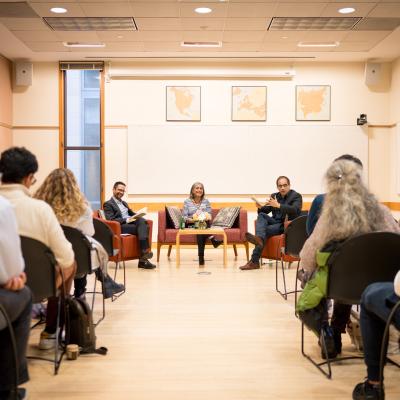As part of the MacMillan Center for International and Area Studies at Yale University, the Council seeks to foster lively intellectual exchange from a wide range of disciplinary perspectives by integrating teaching and research on traditional South Asia with contemporary study of the region. The Council provides a forum for student and faculty interaction, both social and intellectual, and promotes South Asian cultural events.
Yale has a remarkable diversity of resources on South Asia. The University offers regular instruction in modern and ancient South Asian languages: Hindi, Sanskrit, and Telugu. Yale faculty specialize in all periods and many regions of South Asia, with particular expertise in anthropology, architecture, art history, astronomy, economics, history, languages, law, literatures, management, medicine, music, political science, religions, and women and gender studies. Faculty on the Council teach in several professional schools at Yale including Architecture, Art, Environment, Management, and Medicine. Other resources on South Asia are available at the Yale Library, Yale University Art Gallery and the Yale Center for British Art.
The undergraduate program in South Asian Studies combines the requirements of a discipline-based first major with significant course work in South Asian Studies. South Asian Studies can be taken only as a second major and is intended to provide students with a broad understanding of the history, culture, and languages of South Asia as well as the region’s current social, political, and economic conditions.
These rich curricular offerings are merely the basis for the interdisciplinary work of the Council. Through innovative lectureships, conferences, seminars, fellowships and cultural events, the Council seeks to promote cross-disciplinary exchange and to integrate the study of the past with contemporary South Asia. It also seeks to stretch geographical borders, emphasizing the links that South Asia traditionally has had and continues to have with other Asian countries and the rest of the world. Understanding the complexity of South Asia, both past and present, can facilitate a dialogue on modernity in the global context. The Council works actively with other Councils, inter-disciplinary programs, and professional schools to address these larger issues.
